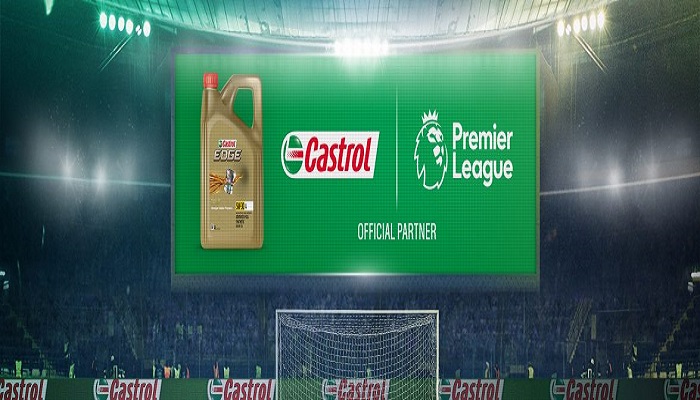Castrol announced its new partnership with the Premier League. While this agreement is allowing Castrol to promote its range of premium fluids and lubricants by workshops and grow awareness of the Castrol Service Network among a wider audience, the partnership goes deeper than just a pure sponsorship arrangement. Both Castrol and the Premier League share the same fundamental principles of fostering high levels of performance, whether it’s on the pitch, in engines, or within workshops.
To understand and identify the parallels between leadership traits that deliver superior levels of performance both on the pitch and in the workshop, Castrol has teamed up with leading sports psychologist, Martin Perry, to define what it takes to create and motivate a winning team. Perry has helped professional sports men and women in over 32 different sports overcome performance-related challenges, and has regularly guided executives on how to apply sports team management best practice within blue chip businesses.
In this, the second of three features in AM, Perry discusses four leadership traits that can be adopted by managers in motor sales and aftersales to raise confidence, boost ability, and improve the smooth running of their teams.
SELF-AWARENESS
“The beauty of the human character is that we’re all different, with each of us having our own strengths, weaknesses and personalities,” explains Perry. “It’s only natural that we’ll get on well with some people more than others. Managers need to have a greater level of self-awareness to ensure they adapt their approach on a one-to-one level to get the best out of team members.”
Good managers will be aware of how they communicate with their team and the dynamics this engenders, says Perry. “They will continually self-check and gather feedback on how well they are communicating – and how well they are being understood – and the positives or negatives that result. Bad managers will look externally at others if the team is under-performing, rather than looking at themselves. They should continually ask themselves what they could and should do better to support and nurture their team.”
With the cut and thrust of day-to-day activities all-encompassing, managers should try and take time out to reflect on their own performance and evaluate how they could improve what is achieved as a collective. “Like a decent football coach, a decent manager will adapt their own behaviour to help guide the team’s performance. They will look at ways they can intervene to tackle poor performance, for instance by offering additional training, or by improving the ways in which performance is tracked and discussed with others able to assist.”
SELF-DEVELOPMENT
With the world constantly changing and new technologies and methodologies always on the horizon, football managers are always learning about the latest trends that will lead to successful outcomes on the pitch.
“While past successes can provide a psychological foundation for future outcomes thanks to the added confidence this can instil, the best managers aren’t wedded to what they did in the past,” says Perry. “With the formula for success constantly evolving, learning about the latest techniques can be invaluable. Some managers deliberately hire people with more advanced experience to assist with their own self-development, while others get ideas from other managers from other sectors or disciplines. In a similar vein, sales and managers of workshops can follow suit by staying curious, keeping an open mind, and evolving their own tactics to get even better results.”
Perry adds: “An important way for a manager to build upon their personal skills is to become self-aware. One of the best ways to do this is to reflect on outcomes and their own responses at the end of each day to identify strengths, limitations and opportunities for improvement.”
MOTIVATION
Many football players see accomplishment as a big motivation; they are keen to prove a point of their own technical capability, perhaps by proving doubters wrong. They aim to be a trailblazer by reaching a level others haven’t reached. In motor retail environments, identifying ways to motivate is equally important, guiding us and others to set and reach new goals.
Perry says: “There are many areas that motivate both managers and individual team members – striving for technical excellence, performance excellence, financial security, even just being happy and fulfilled. Everyone should be encouraged to understand what motivates them in order to succeed; too often that analysis just doesn’t happen in a business context.”
Layla Yebaile, Service and Maintenance Marketing Lead at Castrol, adds: “Fostering a positive working relationship with your team where motivations can be explored is highly beneficial. Appreciation of individual motivations helps managers maximise the outcomes that can be achieved as a collective.”
Taking on too much can cause problems – stress, anxiety, and even depression. Everyone should take time out for themselves, for instance by eating well and undertaking regular exercise. Being able to delegate is also important in order to share the workload and build trust and performance in others.
“A good manager will look out for the macro detail of their team members,” says Perry. “Is an individual quieter or louder than usual? Are they exhibiting signs of anxiety? Observing these small signs can help pinpoint if a player or employee is showing signs of carrying a burden.”
“Team members can be given guidance on how to operate in a healthy environment and should be given the tools to do so by carrying out workshops. Just as football players will receive fitness coaches, masseurs and nutritional experts to maintain their health and fitness, motor retail businesses and workshops can offer health schemes and provide access to experts, not just for physical health, but also for mental health.”
Source: Castrol



